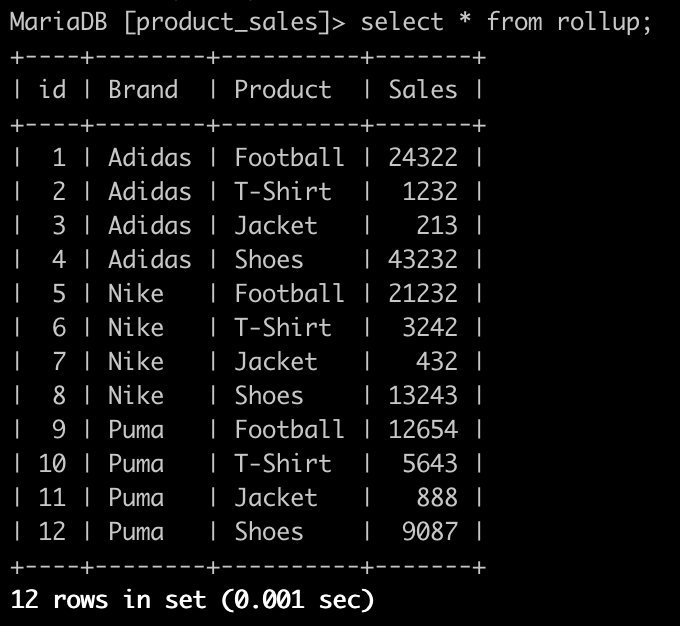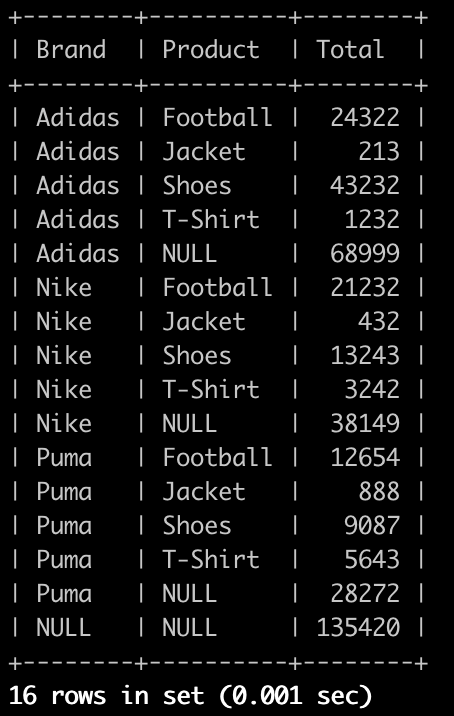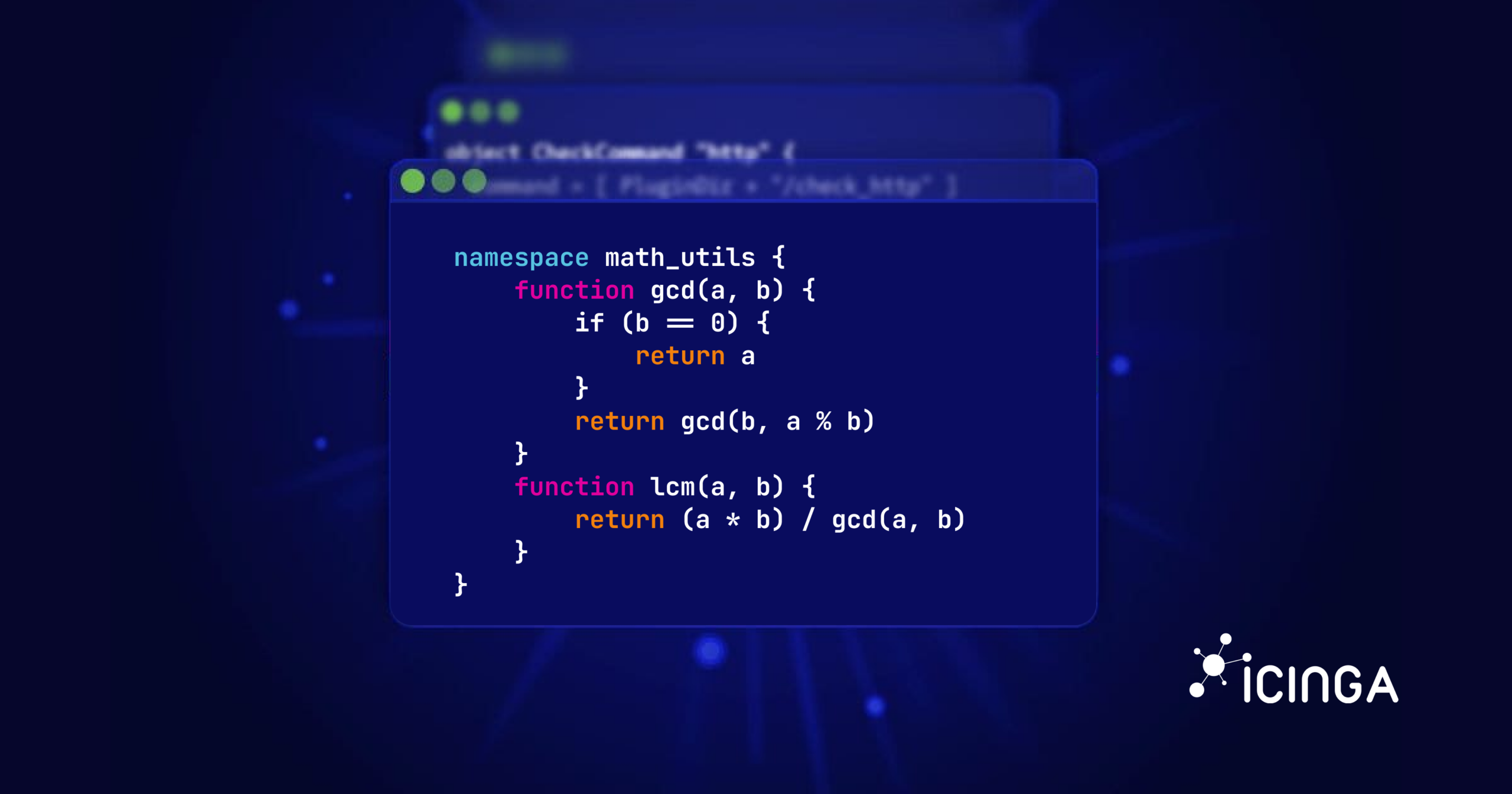For our Cube module we use the ROLLUP SQL query to fetch all data from the database and then make a tree data structure out of the given result. This is how we make it a lot easier to render cubes dynamically.
What is ROLLUP? and how it works?
The SQL ROLLUP is a subclause of the GROUP BY clause which provides a shorthand for defining multiple grouping sets.
When generating the grouping sets, ROLLUP assumes a hierarchy among the dimension columns and only generates grouping sets based on this hierarchy.
The ROLLUP is often used to generate subtotals and totals for reporting purposes.
What does it actually?
To explain this briefly let’s create a SQL table.
CREATE TABLE rollup ( id int auto_increment primary key, Brand varchar(255), Product varchar(255), Sales varchar(255) );
Now fill some data into the table as follows:
INSERT INTO rollup (Brand, Product, Sales)
VALUES
('Adidas','Football',24322), ('Adidas','T-Shirt',1232), ('Adidas','Jacket',213), ('Adidas','Shoes',43232),
('Nike','Football',21232), ('Nike','T-Shirt',3242), ('Nike','Jacket',432), ('Nike','Shoes',13243),
('Puma','Football',12654), ('Puma','T-Shirt',5643), ('Puma','Jacket',888), ('Puma','Shoes',9087);
The query SELECT * FROM rollup should show you the following result:
To represent this data in a grouping sets, and to be able to make a tree data structure out of it, we do a simple query: SELECT Brand, Product, SUM(Sales) AS Total FROM rollup GROUP BY Brand, Product WITH ROLLUP;
What does this query do?
This gives us the sum for each product of each Brand plus the sum of all Products of a Brand plus the sum of all products of all brands (grand total).
The result will look like the following:
To represent this result like a file system tree, we have to create a data tree structure out of this result:
$rs = fetchData(); // Database query result
$columns = ['Brand', 'Products', 'Total'] // Database columns
function getTree($rs, $columns) {
$pending = new Node();
$tiers = new SplStack();
$columns = ['Brand', 'Products', 'Total']
foreach ($rs as $data) {
$data = (object) $data;
foreach ($columns as $dimension) {
if ($data->$dimension === null) {
$pending->setValue($data);
while (true) {
if ($tiers->isEmpty() || $tiers->top()->getValue()->$dimension === null) {
break;
}
$pending->appendChild($tiers->pop());
}
$tiers->push($pending);
$pending = new Node();
continue 2;
}
}
$pending->appendChild((new Node())->setValue($data));
}
$pending->appendChild($tiers->pop());
return $pending;
}
// Make node recursively iterable
$iterator = new RecursiveIteratorIterator(getTree($rs, $columns), RecursiveIteratorIterator::SELF_FIRST);
// Print node values recursively
foreach ($iterator as $node) {
echo str_repeat(' ', $iterator->getDepth())
. implode('/', (array) $node->getValue())
. PHP_EOL;
}
To make the tree node recursively iterable, pass it to the class RecurciveIteratorIterator.
This class needs the passing object to be an instance of traversable, so we have to implement the class IteratorAggregate to the Node class as following:
class Node implements IteratorAggregate
{
/** @var Node[] */
protected $children = [];
/** @var mixed */
protected $value;
public function hasChildren()
{
return ! empty($this->children);
}
/**
* @return Node[]
*/
public function getChildren()
{
return $this->children;
}
/**
* @param Node $children
*
* @return $this
*/
public function appendChild(Node $child)
{
$this->children[] = $child;
return $this;
}
/**
* @return mixed
*/
public function getValue()
{
return $this->value;
}
/**
* @param mixed $value
*
* @return $this
*/
public function setValue($value)
{
$this->value = $value;
return $this;
}
/**
* @inheritDoc
*
* @return NodeIterator
*/
public function getIterator()
{
return new NodeIterator($this);
}
}
Please make sure the class NodeIterator implements RecursiveIteratory and have the constructor as following:
public function __construct(Node $node)
{
$this->children = new ArrayIterator($node->getChildren());
}
$iterator = new RecursiveIteratorIterator(getTree($rs, $columns), RecursiveIteratorIterator::SELF_FIRST);
The object $iterator can now be iterated recursively.
Have fun experimenting with the rollup iteration and stay tuned for more interesting blog posts.








